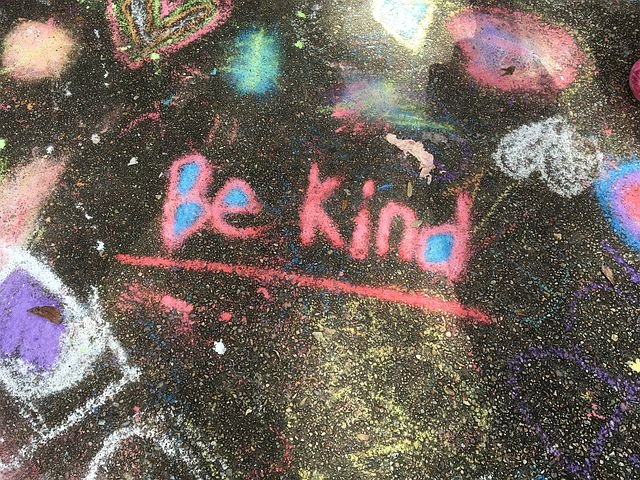A Few Kind Words

Lisa Feldman Barrett, professor of psychology at Northeastern University, Boston author of ‘Seven and a Half Lessons About the Brain’ says this (see Guardian March 1st 2022 ‘The big idea: is it time to stop talking about ‘nature versus nurture ?’):
“Few scientists today would say that 100% of your attributes are inborn or are learned; the debate tends to be about where to draw the dividing line. Newer evidence, however, suggests that the dividing line doesn’t really exist. Your environment, it turns out, causes certain genes to turn on and off, a process called epigenetics. You also have genes that regulate how much the environment affects you. Genes and environment are so deeply entwined, like lovers in a fiery tango, that it’s fundamentally unhelpful to call them separate names like “nature” and “nurture”.
Even emotions like joy, sadness and fear, which feel inborn and automatic, are in fact a product of culture
Culture is not a mere moderator of our biology, then, but a fully-fledged cause. ….. if you’re exposed to adversity in early life, it may activate certain genes and suppress others, wiring your brain to deal with adversity that may arise in the future. Unfortunately, this wiring also makes you more vulnerable to depression, anxiety, heart disease and diabetes in adulthood. If you have children, you might pass some of these characteristics on to them through epigenetic changes.”
Why is this important for us to know about this?
Nurture has always been a vital factor in the communication necessary for raising happy healthy children. Humans are social creatures and nurture comes naturally to us all.
The idea of nurture in a formal sense entered schools in the UK in 1969 with educational psychologist Marjorie Boxall’s Nurture Groups and Boxall Profile, based on attachment theory. This holds that for healthy social and emotional development a child needs a relationship with at least one primary care giver.
Nurture Groups are in common use in UK primary school settings to strengthen the social, emotional and behavioural learning of children at risk of poorer outcomes.
Nurture
The Boxall Profile has Development Strands and a Diagnostic Profile each consisting of 34 items and a histogram to display the data. In Boxall’s approach Nurture Groups are based on six principles which also support the general idea of kindness:
- Nurture enables children to develop their self-esteem and optimism by focusing on strengths and successes without the use of consequences to pull and push them from the outside, in a calm way.
- Children’s learning is understood as an aspect of their development, where adults respond to children as they are, rather than how they should be.
- The classroom offers a safe base where nurturing relationships can develop, containing anxiety and the reactions it produces in children and enabling thoughtful cognitive learning.
- Verbal language puts feelings into words, allowing children to develop their communication skills beyond non-verbal acting out of their feelings.
- Children’s behaviour is seen as their way of communicating their hopes and needs. By seeing them as doing their best to communicate and listening carefully, we open up the pathway to learning.
- Nurture enables children who get anxious about transitions to prepare themselves for changes in and trust the support we can offer.
Over the intervening years Boxall’s Nurture Groups and Profile have been in regular use with the youngest children. In 2010 the Welsh Assembly published ‘Nurture Groups: a handbook for schools’. In 2014 the Welsh Schools Inspectorate recommended the use of Nurture groups to boost attendance of vulnerable children. In 2019 a Children and Youth Services Review in Northern Ireland carried a research report on the effectiveness of Nurture groups, reporting that:
“Concerns have grown regarding the increased prevalence of social, emotional and behavioural difficulties observed in young children in primary school settings. …. one consistent emphasis has been on the negative effects of children’s poor attachments with significant others which, due to contextual factors, may not have developed sufficiently. Some groups of children are more at risk of not developing strong attachments, particularly children in care whose ‘pre-care’ and ‘in care’ experiences make it more likely that their attachments will have been adversely impacted. Reflecting this increasing concern, there has been a growth of school-based interventions that aim to strengthen attachments in order that children can develop social and emotional skills; thus enabling them to be better placed to access learning opportunities and reach levels of educational achievement and attainment similar to their peers. One such intervention is Nurture Groups, modelled on attachment theory. Nurture Group provision is a short-term, schools-based intervention targeted at individual children beginning school who are already displaying social, emotional and/or behavioural difficulties.”
More recently this approach has been trialled in secondary school, mainly with the younger children, with some success and some problems to do with the perception of nurture for older children (see the work of David Colley, associate lecturer in special educational needs and inclusion at Oxford Brookes University: Guardian April 1st 2022).
Boxall’s central concern in 1969 was how difficulties with attachment in very young children affected their social, emotional and behavioural development. Since then thinking around the impact of this and other serious difficulties has broadened to include other damaging factors occurring in childhood (ACEs – Adverse Childhood experiences). Other forms of support have been developed and implemented, trauma-aware and strengths-focused practice responding to children’s needs.
Professor Barrett mentions epigenetics, the system connecting events in the world outside a child with their brain/body responses which emerge in their behaviour. It’s now clear that in addition to the better-known genetic code there are identifiable epigenetic factors. Where the genes are unaffected by what goes on outside as they operate in the dark insides of cells, assembling molecules, the epigenetic system is receiving information from the environment in real time and switching genes on or off to meet the needs of the moment.
Genetics are set when fertilisation of the egg happens, presenting the overall potential of the developing organism. Epigenetics enable this potential as the response to a changing environment throughout life. A child’s experiences are received and translated into biochemical activity by the epigenetic system to emerge as behaviour. Positive experience of nurture, kindness, acceptance and empathy are translated into children’s positive social, emotional and behavioural behaviour. Negative experience of shaming, fear and coercion translate into aggression or collapse and disengagement. A child difficulties might seem unmanageable and resistant to change when we attempt to manage their behaviour with the negative experience of punishment. But given the different, positive experience of kindness, empathy and unconditional positive regard through relationship they can and do learn and grow to be at their best.
Structured kindness and systematic change in schools
In 2016 during a training session in a Lincolnshire school was the first time I used the term ‘structured kindness’ to describe my approach, Solutions Focused Coaching. Focusing on solutions rather than problems, strengths rather than weaknesses, SFC offers a practical, kinder alternative to structured punishment as the core response to children whose behaviour challenges school systems.
Kindness as an approach to building solutions to children’s complex problems, and by association those of school staff too, was embedded in Boxall’s ideas about nurture. Since then the profile of kindness is growing: a Google search on ‘kindness’ brings up a raft of books on kindness ( https://www.google.com/search?client=safari&rls=en&q=books+on+kindness&ie=UTF-8&oe=UTF-8 ). The current Kindness Test BBC Radio 4/Sussex University project ( https://www.bbc.co.uk/programmes/m000z5hf ) brings it to a wider audience. The emphasis on positive relationships as the foundation for positive behaviour and focusing on solutions and strengths in Solution Focused Coaching brings accessible therapeutic education into schools.
Viewed through the lens of kindness we can take a critical look at practices in schools which risk further harming those children who are communicating their needs to us through their behaviour. Focusing on challenging and withdrawn behaviour without taking into account what we and the child might be hoping for instead, responding to it in an inflexible way, has the potential of being intentionally harmful, running against the intention of most educators.
So let’s go for kindness instead.

